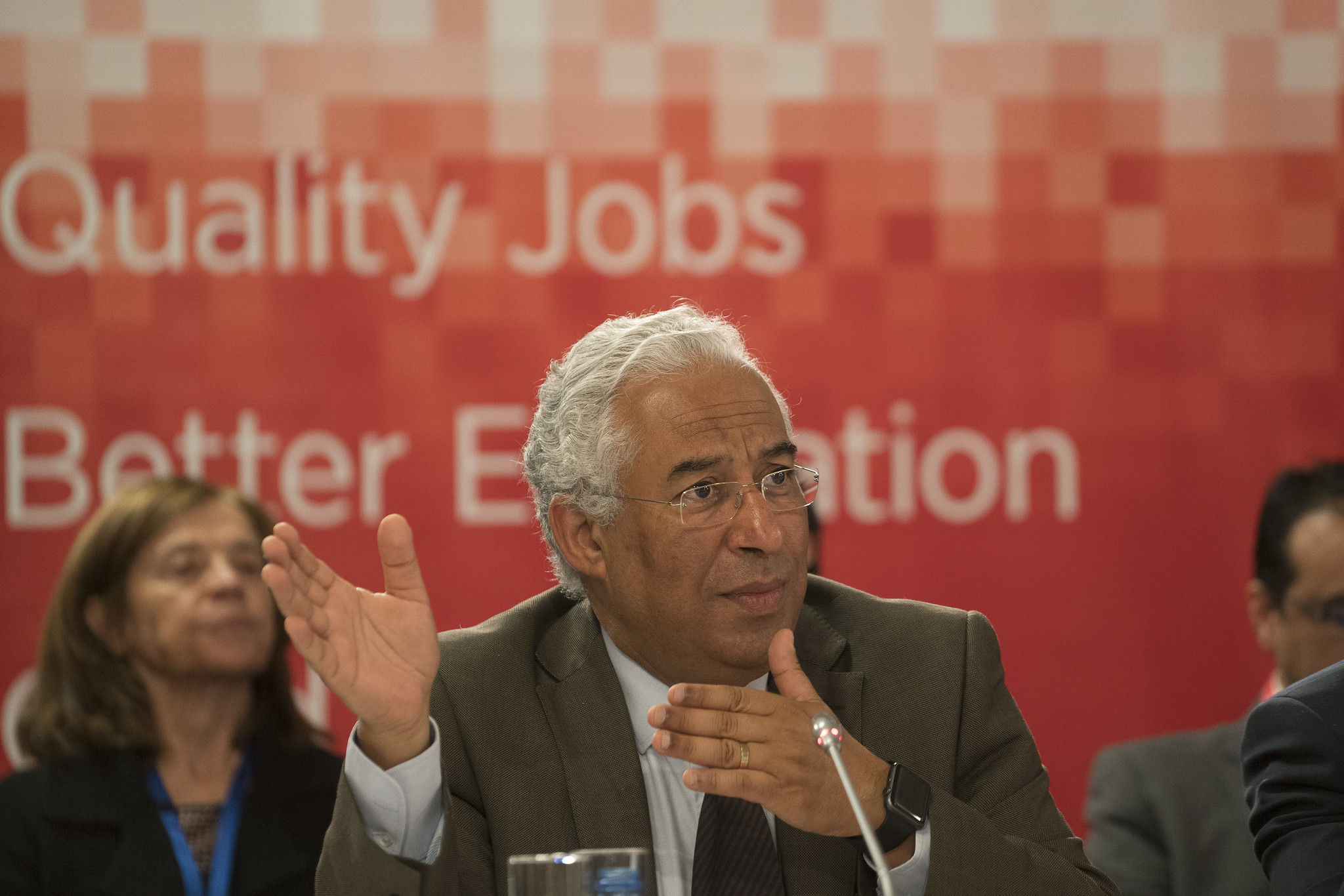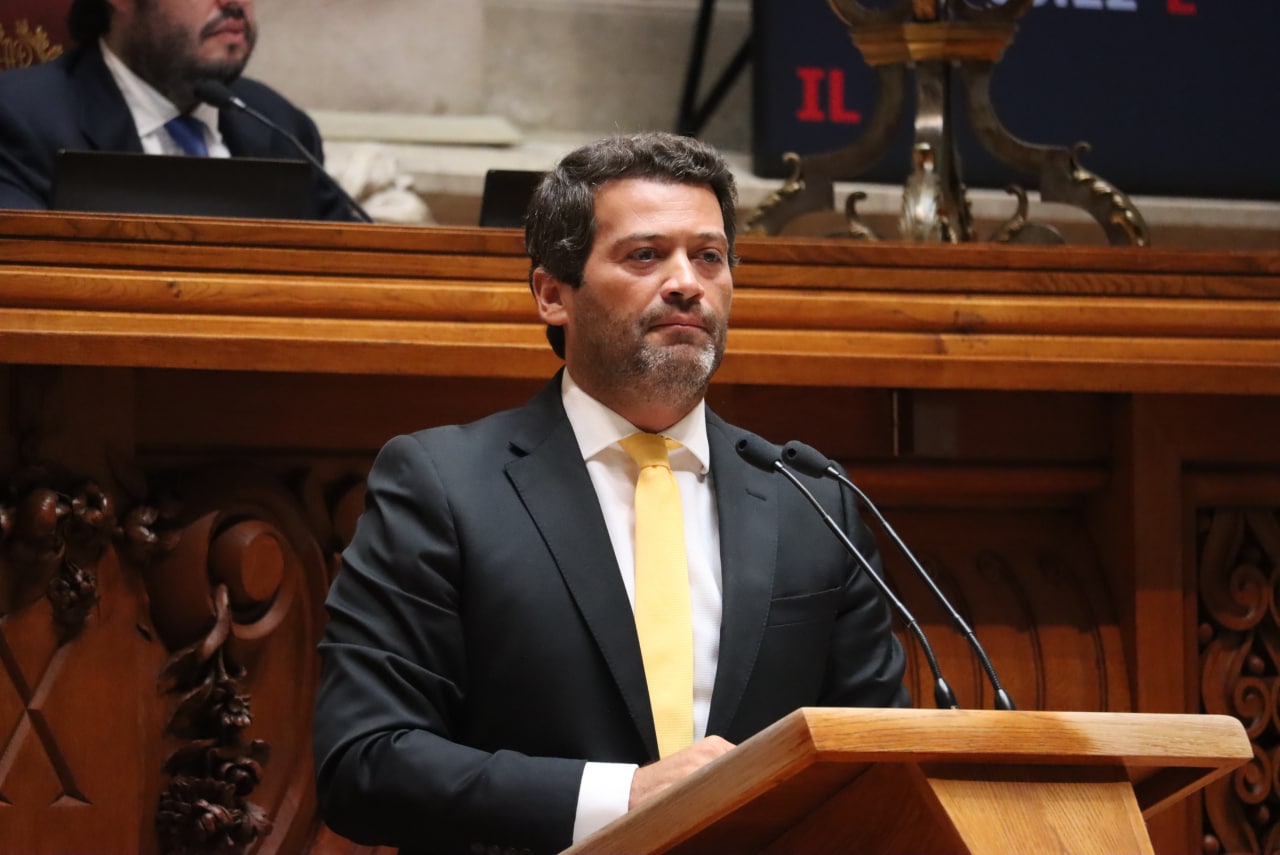The Portuguese snap elections of 10 March were a political earthquake. The left and centre-left parties that dominated the country’s politics for almost ten years have suffered a painful defeat. The conservative Democratic Alliance (AD) won the elections, although by a very narrow margin. The real victor was the far-right party Chega, which more than doubled its share of the vote. Impressionists warn this heralds a turn to the right in Portuguese society. However, these results are a harbinger of instability and of major class battles to come.
The failure of the left
The electoral swing towards the right cannot be understood without taking stock of Portugal’s recent history. The 2008 crisis hit Portugal hard. The country was bailed out by the troika (the IMF, European Central Bank and the European Commission), which demanded harsh austerity measures.
Millions took to the streets, and the country was rocked by mass mobilisations. This radicalisation found a political expression in the 2015 elections, which represented an unprecedented victory for the left. The Portuguese Communist Party (PCP) and the Left Bloc (BE) won over a million votes: the best results for parties to the left of Social Democracy since the revolution of 1974-75. The PCP and the BE helped socialist António Costa form a minority government.
In the initial period of collaboration with the socialist prime minister António Costa, the left achieved some important reforms. The government and its left-wing allies enjoyed considerable popularity and won an easy victory in the 2019 elections. The backdrop for this was the relative stabilisation of Portuguese capitalism in 2015-19.
However, this limited recovery, based on tourism, was achieved on the backs of the working class. In many ways, living standards continued to deteriorate: access to housing, working conditions, healthcare, etc. More importantly, the room for reform narrowed in 2020 with the pandemic, and after 2021, with the inflationary spiral.
 Costa’s majority government was a giant with feet of clay / Image: PES Communications, Flickr
Costa’s majority government was a giant with feet of clay / Image: PES Communications, Flickr
Darkening economic conditions after 2020 were the backdrop for growing tensions between Costa and his PCP and BE allies, which led to early elections in early 2022. Costa’s socialists won an absolute majority, and the PCP and BE suffered a major defeat. Their policy of close collaboration with the socialists blurred the boundaries between the different left parties, to the effect that most working-class voters rallied around the strongest left-wing candidate, Costa.
However, Costa’s majority government was a giant with feet of clay. He was left to administer worsening social and economic conditions single-handedly. The crisis of capitalism leads to the crisis of reformism as night follows day. Today, galloping inflation has gobbled up the reforms of 2015-19. The housing crisis has become unbearable for millions. Public healthcare totters on the brink of collapse. Workers’ wages are incapable of meeting basic needs. Adding insult to injury, the Costa government was involved in a series of corruption scandals that precipitated the snap elections of March 2024.
There is a mood of seething discontent in Portuguese society. This was expressed in the mass protests and strikes of the past two years. However, the official left parties were in no position to capitalise on this discontent.
The corrupt, pro-capitalist Costa government was blamed for the parlous state of the country. But the left-reformists of the PCP and the BE are also mistrusted after years of close cooperation with the ruling socialists.
The PCP and BE leaders drew all the wrong conclusions from the preceding period: during the elections campaign, they called for a repetition of the alliance with the socialists, believing that they would prod them to the left. They cannot understand that the anti-worker agenda of the socialists is not dictated by the whims of António Costa, which can be checked by a few extra left-wing MPs. His policies are determined by the crisis of capitalism!
Responsible for the current crisis in the eyes of many, the left failed miserably in these elections. The socialists lost over half a million votes. The PCP went from 332,000 votes in 2019 to 238,000 in 2022, to 202,000 now – a historic low. The Left Bloc fared slightly better, but the overall curve follows the same direction: 498,000 in 2019, 244,000 in 2022, and 274,000 now. The Left Bloc and the Communist Party have been driven into a cul-de-sac by their reformist leaderships: it is up to their rank-and-file to change course, breaking with reformism and adopting a revolutionary programme.
The debacle of the left is the inevitable result of the betrayals of reformism. Propelled to power by the mass mobilisations of the past decade, the reformist leaders trampled on the expectations they awakened. And it could not be otherwise insofar as they lacked a revolutionary perspective and accepted capitalism, becoming responsible for the management of its crises. Unfortunately, in the process they created fertile ground for cynical demagogues, who stepped in temporarily to cash in on their discredit.
The rise of Chega
 André Ventura, a former trainee priest and football commentator and now the leader of far-right Chega, was seen as the main victor of the elections / Image: Partido Chega, Twitter
André Ventura, a former trainee priest and football commentator and now the leader of far-right Chega, was seen as the main victor of the elections / Image: Partido Chega, Twitter
Although he came third, André Ventura, a former trainee priest and football commentator and now the leader of far-right Chega, was seen as the main victor of the elections. He went from under 400,000 votes in 2022, to 1,108,000 now.
This party conducted a demagogic campaign, reactionary in content, but radical in form. It called for a thorough “clean-up” of Portugal and aggressively attacked mainstream parties for their corruption. Ventura made all sorts of demagogic promises about raising pensions and wages.
On this basis, the newcomer won the support of angry voters who wanted to ‘stick it to the man’. This is a protest vote that, deep down, expresses seething anger against Portugal’s capitalist regime. But on account of the discrediting of the left, this protest vote has adopted an extremely distorted expression in the form of Chega.
The increase in Ventura’s share of the vote broadly corresponds to the increase in participation. This suggests that many of his voters did not come from other parties but from abstention.
Ventura’s demagoguery galvanised a contradictory base of support, ranging from the reactionary petty bourgeoisie to disenchanted sectors of the working class. It is significant that the party scored some of its best results in places such as Beja and Portalegre, in Alentejo, and in the southern periphery of Lisbon, historic bastions of the Communist Party.
If we scratch the radical veneer of Ventura’s demagoguery, we will find the unadulterated programme of the ruling class. He has been funded and mollycoddled by big business interests and by the capitalist media.
It would be a mistake, however, to label Ventura a fascist. Fascism is the mass mobilisation of the enraged petty bourgeoisie for the physical liquidation of all working-class organisations. Ventura is certainly a viciously reactionary capitalist demagogue. However, he lacks a mass party and rests on an utterly incoherent, and therefore fragile, base of support.
The balance of forces in Portuguese society, with a powerful working class and the erosion of small property – the traditional bulwark of reaction – is unfavourable to fascism. This, however, is no argument for complacency. Ventura is an enemy of the working class. The closer Ventura comes to power, the more his reactionary pro-capitalist agenda will come to the surface. His contradictory base of support will fray. Class-conscious workers must go on the offensive, expose him, and fight back.
A new, turbulent period
 The closer Ventura comes to power, the more his reactionary pro-capitalist agenda will come to the surface / Image: Duke of Winterfell, Wikimedia Commons
The closer Ventura comes to power, the more his reactionary pro-capitalist agenda will come to the surface / Image: Duke of Winterfell, Wikimedia Commons
A phase of deep instability opens up in Portugal. The Democratic Alliance conservatives lack a stable majority. Barring an electoral repetition (which cannot be ruled out), the Democratic Alliance will either have to draw the socialists into a ‘grand coalition’, which is unlikely considering the existing levels of polarisation, or, the most likely scenario, they will have to strike a deal for an alliance with Chega.
Ventura has already expressed his desire to enter government. Such a coalition would be extremely unpopular and corrupt and would blow its base of support to smithereens when they begin applying the full programme of the capitalists in the context of a deep crisis, all while Ventura and his clique pillages the exchequer. This would prepare future turns to the left. The problem, however, is the lack of a revolutionary class alternative. It is the task of all class-conscious workers and youth to build this.
The Portuguese Revolution that began on 25 April 1974 ended in defeat due to the betrayals of the Stalinists and the Social Democrats. Bourgeois democracy emerged from the ashes of the revolution. The same parasites that exploited the people under the dictatorship continue to line their pockets, now under a more humane political system.
For five decades, this regime ensured relative stability for the capitalists. This is now coming to an end, as the capitalist crisis disturbs the equilibria beneath the regime, and short-circuits its safety switches. As perceptive bourgeois Marcelo Rebelo de Sousa, the president of Portugal, noted on the eve of the elections: “a fifty-year cycle in our history is drawing to a close […], because the situation abroad, and thus also at home, is very difficult.”
The entire regime is discredited and ripe for its overthrow. It is necessary to destroy capitalism to fulfil the broken dreams of the April Revolution.

